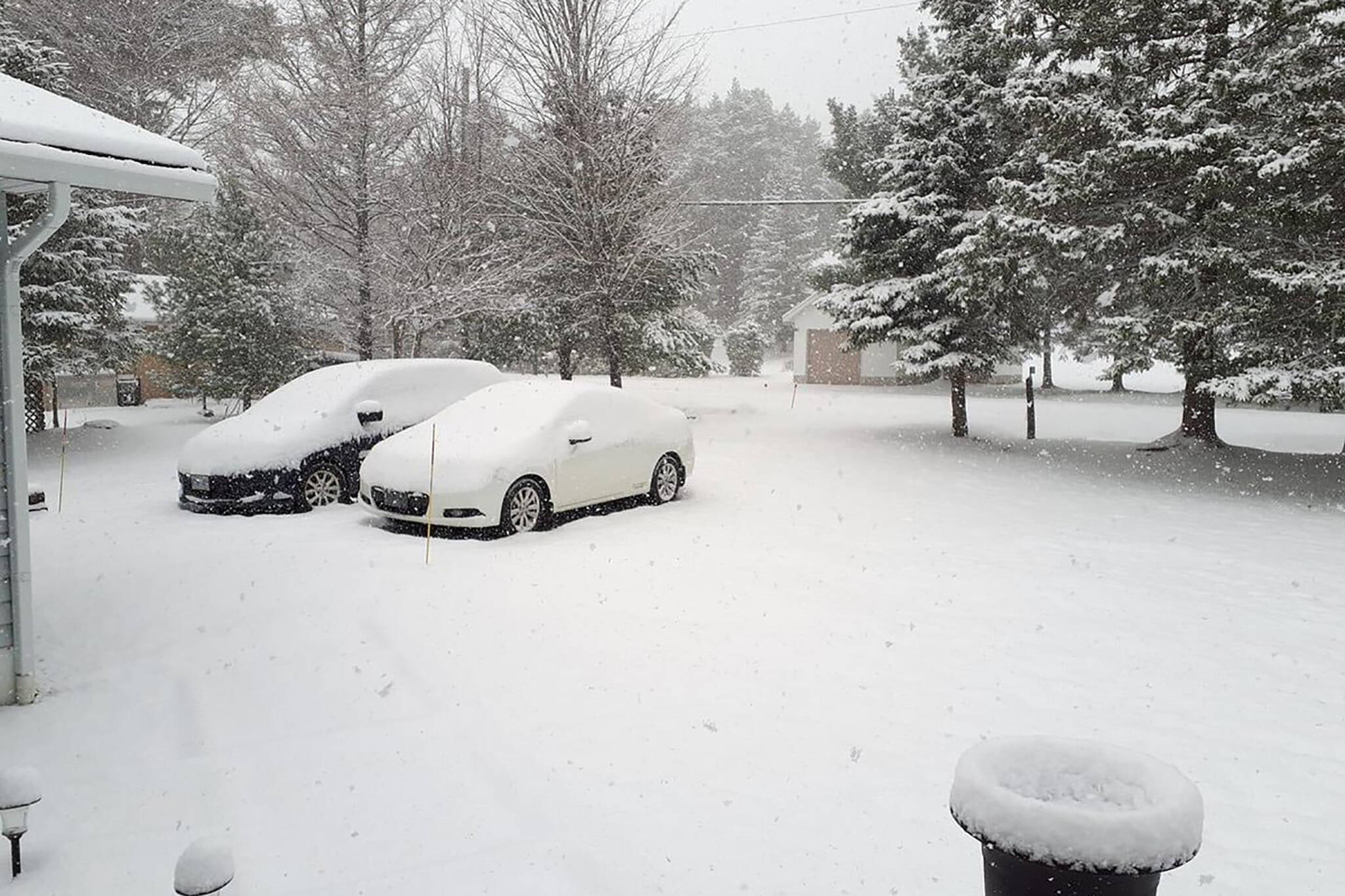
Some parts of Ontario are now covered in snow and it looks like winter
The unusual snowfall originally predicted for this weekend hit parts of northern Ontario today, and it has blanketed areas of the region in fresh powder.
The unseasonable snowfall is the result of a polar vortex sweeping over the region that's expected to last throughout today and into the weekend.
A thick coating of snow in Combermere, Ontario (north of Bancroft) this morning. 📷 from Larraine. pic.twitter.com/zfTrmgRSaD
— Anthony Farnell (@AnthonyFarnell) May 8, 2020
This has led to a blast of arctic air bringing in low temperatures typically not seen around this time of year.
Meanwhile at the #SugarShack #Snow #Algonquin #Ontario @weathernetwork @KMacTWN @jwhittalTWN @StormhunterTWN pic.twitter.com/nBFPBurG28
— Madawaska Maple (@madawaskamaple) May 8, 2020
Anyone expecting to go to the cottage this weekend or the next —despite orders not to do so — may want to check the weather beforehand as this bout of chilly wetness may make for a difficult journey.
Snow in May Kanata Ontario. Looks more like March than May bird feeders are all filled for hungry birds. Hopefully it won’t stay long I hope. pic.twitter.com/ASXTlr43KK
— davecathyo@gmail.com (@davecathyo) May 8, 2020
If you've already dusted off the Muskoka chairs early, you may need to wait a bit longer to wrap up in a cozy blanket and enjoy a hot tea on a porch or a dock somewhere.
Northern Ontario living.... pretty, but somehow prettier in December #greaterSudbury #sudbury #SnowInMay #snow #snowing pic.twitter.com/05hzCEnDWW
— Jeannette (@Canadian_J_A) May 8, 2020
"Ontario is a massive province and naturally the further north you go, the higher the probability is that you'll see accumulating snow in May," wrote The Weather Network in a blog post.
It is May 8. And we have 10cm of snow. I *love* living in Northern Ontario. pic.twitter.com/jt57K5XY6U
— Thierry (@ThierryM13) May 8, 2020
"It's uncommon in southern Ontario, but northern regions of the province can expect to see a few centimetres of snowfall every May."
This was taken this morning by neighbours at our summer cottage. It’s about 200 km north of Toronto. Depressing since were supposed to open the cottage for the summer on the Bank holiday next week. pic.twitter.com/NOmgOHesC0
— Squidget 🇨🇦🍁 (@MapleSquidge) May 8, 2020
Although it may be too early to put away the winter jacket just yet, temperatures are expected to return to relative normal for this time of year fairly soon, even if it has been a particularly cold spring.
Latest Videos
Latest Videos
Join the conversation Load comments







